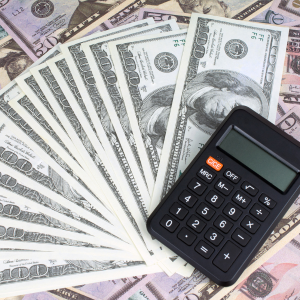
Understanding Capital Gains And Rental Property Sales In Texas
Understanding capital gains is critical for maximizing profits from rental property sales in Texas. Capital gains are profits from selling assets, such as rental properties.
In Texas, the sale of rental properties is subject to capital gains tax, which can significantly impact profits. Understanding how this tax is calculated and how it applies to your particular circumstances is critical.
The length of time you’ve owned the property and any improvements you’ve made can all impact the amount of capital gains tax you’ll pay. Understanding these concepts can lead to informed decisions and increased profits when selling a rental property in Texas.
Exploring The Tax Implications Of Selling A Rental Property In Texas

Selling a rental property in Texas can result in significant profits, but it’s crucial to consider the tax implications before making any decisions. When a rental property is sold, capital gains tax is levied on the difference between the sale price and the property’s adjusted basis (original purchase price plus any improvements).
In Texas, capital gains taxes range from 0% to 20%, depending on the seller’s income and filing status. Rental property depreciation is subject to a 25% tax rate.
Landlords in Texas should carefully consider tax implications before selling their rental properties, as they can significantly impact profits.
Key Factors That Affect Capital Gains On Sale Of Rental Property In Texas
Several factors can significantly affect capital gains when selling a rental property in Texas. The first consideration is how long the property has been owned.
Generally, if the property is sold after at least one year of ownership, it will be eligible for long-term capital gains tax rates, typically lower than short-term rates. Another important consideration is the property’s cost basis, which includes the initial purchase price and any improvements made over time.
Capital gains will be lower as the cost basis increases. Additionally, any depreciation claimed on the property during its ownership will impact the final capital gains amount.
Certain deductions and exclusions, such as a 1031 exchange or primary residence exclusion, can help reduce or eliminate capital gains taxes. When it comes time to sell, Texas rental property owners can maximize their profits by carefully considering these key factors.
The Importance Of Properly Reporting Rental Property Sales In Texas

When selling a rental property in Texas, reporting the transaction to maximize profits properly is critical. This includes understanding the concept of capital gains and how they are calculated in real estate transactions.
In Texas, the tax rate on capital gains from rental properties varies depending on the length of ownership and the type of property sold. It is critical to accurately report all income and expenses related to the rental property during its ownership to ensure that the correct amount of capital gains tax is paid.
Failure to do so may result in penalties and reduced profits from the sale. Properly reporting rental property sales helps to avoid potential legal issues or IRS audits.
Texas property owners must understand how to calculate and report capital gains when selling rental properties.
Navigating The Complexities Of Capital Gains Taxes For Rental Properties In Texas
Maximizing profits when selling rental property in Texas requires a thorough understanding of the complex world of capital gains taxes. If you sell your property in Texas for more than you paid, you’ll have to pay capital gains taxes on the difference.
But when you include in depreciation and any improvements you make to the property, this calculation can get trickier. To add insult to injury, capital gains are subject to different rates depending on whether the property was held for a year or longer.
Rental property owners must expertly negotiate these intricacies to reduce their taxable income as much as possible while increasing their net profit. Anyone owning rental property in Texas should consult a tax expert or look into internet resources to learn more about capital gains taxes and how to prepare for them.
Top Strategies For Minimizing Capital Gains Taxes On Rental Property Sales In Texas

Property owners in Texas prioritize minimizing capital gains taxes when selling their rental properties. One approach is the “like-kind” exchange, a 1031 exchange.
Property owners can defer paying taxes on sale profits by reinvesting in another investment property within a specific timeframe. Furthermore, keeping track of all rental property expenses and deducting them from the total profit can help reduce capital gains tax liability.
Another effective strategy is to keep the property for more than a year before selling, as this can result in lower long-term capital gains taxes. To maximize profitability when selling rental properties, consult a tax professional knowledgeable about Texas capital gains taxes.
Analyzing The Differences Between Short-term And Long-term Capital Gains In Texas
When selling a rental property in Texas, it is critical to understand the tax consequences of capital gains. One important distinction to make is between short-term and long-term capital gains. Short-term capital gains are taxed at the same rate as ordinary income, whereas long-term capital gains are taxed at a lower rate. In Texas, short-term capital gains are subject to the state’s income tax, which can be up to
5% is in addition to federal taxes. Long-term capital gains, conversely, are exempt from state income tax in Texas, making them more advantageous for profit maximization. When deciding to sell a rental property, it is critical to consider these differences to minimize taxes and maximize profits carefully.
The Role Of Depreciation Recapture In Calculating Capital Gains On Sale Of Rental Property In Texas

Depreciation recapture is important when calculating capital gains from selling rental properties in Texas. Depreciation is a tax deduction that rental property owners can use to account for their property’s gradual wear and tear over time.
However, when selling a rental property, the amount claimed for depreciation must be recaptured and reported as income on the tax return. This can significantly impact the overall capital gains calculation because it increases the property’s cost basis while decreasing the taxable gain.
Consequently, rental property owners in Texas must understand how depreciation recapture affects their profits and plan accordingly to maximize their gains.
Common Mistakes To Avoid When Reporting Capital Gains On Rental Property Sales In Texas
As a real estate investor, you must understand the tax implications of selling a Texas rental property. Capital gains tax, levied on the profits made from the sale of an investment property, is an important consideration.
Many investors, however, make common mistakes when reporting capital gains from Texas rental property sales. These errors can result in substantial financial losses and penalties.
Some common mistakes to avoid include failing to calculate the property’s cost basis accurately, incorrectly classifying the property as a personal residence rather than an investment property, and failing to keep track of all relevant expenses and improvements made to the property over time. By avoiding these blunders and ensuring accurate reporting, investors can maximize their profits while minimizing potential financial losses.
Understanding 1031 Exchanges And Their Impact On Capital Gains Taxes For Rental Properties In Texas

Understanding capital gains taxes is critical for maximizing profits from selling rental properties in Texas. However, one strategy can help rental property owners reduce their capital gains taxes: 1031 exchanges.
This tax code allows for deferring capital gains taxes by exchanging one investment property for another, provided certain conditions are met. The replacement property must also be located in the state and used for rental purposes in Texas.
Using a 1031 exchange, rental property owners can save thousands of dollars in capital gains taxes while upgrading or diversifying their real estate portfolio. When considering a 1031 exchange for rental properties in Texas, planning and seeking expert advice is critical to ensure compliance with all regulations and maximize the impact on capital gains taxes.
How To Determine Your Cost Basis For A Rental Property Sale In Texas
Understanding your cost basis is critical for profit maximization when selling a rental property in Texas. Your cost basis is the original purchase price of the property plus any subsequent expenses incurred during ownership, such as improvements and fees.
To determine your cost basis, gather all relevant documents, including the purchase agreement, closing statements, and receipts for any property improvements. Keep track of any property depreciation, which will affect your cost basis.
By correctly calculating your cost basis, you can avoid overpaying capital gains taxes and potentially increase your overall profit from selling your Texas rental property.
Exploring The Exceptions To Paying Capital Gains Taxes On The Sale Of A Primary Residence In Texas

You need to know about capital gains taxes to get the most money out of selling a rental property in Texas. On the other hand, if you’re selling your main house in the state, you might not have to pay these taxes.
The Primary Residence Exclusion is an exception to this rule that permits homeowners to avoid paying taxes on capital gains up to $250,000 (or $500,000 for married couples) when selling their principal residence. This exclusion will be applicable if the homeowner has resided in the property for a minimum of two of the last five years prior to the sale.
There is also the Military Exception, which states that if a person has been on qualified official extended duty for at least 90 days in a tax year that they own and use the property as their primary residence, they can exclude their capital gains from the sale of a primary residence. If a Texas homeowner wants to sell their main house and avoid paying capital gains taxes, they should familiarize themselves with these exceptions.
The Impact Of State And Federal Tax Laws On Capital Gains From Selling A Rental Property In Texas
When selling a rental property in Texas, it is critical to understand how state and federal tax laws affect capital gains to maximize profits. Capital gains from the sale of a rental property in Texas are taxed on both the state and federal level.
The taxes owed will be determined by the time the property was owned and its current market value. There may also be certain deductions and exemptions, such as depreciation expenses and using a 1031 exchange.
Property owners must be familiar with these tax laws to make informed decisions about when and how to sell their rental property, minimizing tax liabilities while increasing profits.
Tips For Strategically Timing The Sale Of A Rental Property To Maximize Profits And Minimize Taxes

When selling a rental property in Texas, timing is everything. Understanding capital gains taxes can significantly impact your profits as a landlord.
Before listing your property, consider the current market trends in order to maximize profits and reduce taxes. If the market is hot and there is a high demand for rental properties, you may want to wait until you can get a higher price.
Also, try to sell during a tax year when your overall income is lower, as this may reduce your capital gains tax rate. Another strategy is to use a 1031 exchange, which allows you to defer paying taxes on the sale if you reinvest the proceeds in another investment property within a certain timeframe.
By carefully considering these factors and strategically timing the sale of your rental property, you can maximize profits while minimizing taxes in Texas.
Utilizing Deductions To Offset Capital Gains Taxes On Sale Of A Rental Property In Texas
Understanding capital gains and how they are taxed is essential when selling a rental property in Texas. However, deductions are another way to reduce the impact of these taxes.
These deductions can include expenses incurred while owning the property, such as repairs, maintenance, and improvements. Certain expenses associated with the sale, such as real estate agent fees and closing costs, can also be deducted.
By properly utilizing these deductions, investors can offset their capital gains taxes and maximize their profits from selling a rental property in Texas. It is critical to keep detailed records and consult with a tax professional to ensure that all eligible deductions are claimed correctly.
Is There Capital Gains Tax On Selling A Rental House In Texas?
Understanding capital gains and their tax implications is critical for maximizing profits when selling Texas rental properties. The Internal Revenue Service (IRS) defines capital gains as the profit made from the sale of an asset, such as a rental property.
While Texas has no specific state capital gains taxes, sellers may be subject to federal taxes on their gains. However, some exclusions and deductions are available that can help reduce the impact of these taxes.
Property owners must become acquainted with these laws and consult with a tax professional to ensure that they are utilizing all possible strategies for reducing taxable income and, ultimately, maximizing profits.
How To Avoid Paying Capital Gains Tax On Sale Of Rental Property?

You must know about the capital gains tax to make the most money selling rental properties in Texas. Capital gains tax is a kind of tax that you have to pay on the money you make when you sell something, like a rental property.
But you can avoid paying this tax, which will help you save money. One option is to use the 1031 exchange, which lets you put off paying capital gains tax by buying another investment property with the money from the sale.
You could also wait at least a year before selling the house since properties held for longer than a year have a lower capital gains rate. Deductions and credits can also help lower the amount of taxable income from the sale.
If you know these tricks and work with a good accountant or financial advisor, you can lower or even get rid of the capital gains tax you must pay when selling rental properties in Texas.
How Do I Calculate Capital Gains On Sale Of Rental Property?
When selling a rental property in Texas, understanding how to calculate capital gains is critical for maximizing profits. Capital gains are the difference between the purchase price and the sale price of a property.
To calculate this amount, subtract depreciation expenses from the original purchase price. Then, deduct selling expenses, such as realtor commissions or closing costs.
The remaining amount is your capital gain, which will be taxed. Before selling your Texas rental property, consult with a tax professional or use online calculators to determine your capital gains and potential tax liabilities accurately.
How Do I Avoid Capital Gains Tax On Property In Texas?
One of the most common concerns for property owners when selling rental properties in Texas is the potential capital gains tax. However, there are ways to reduce or even eliminate this tax.
One option is to use the primary residence exclusion, which allows individuals to exclude up to $250,000 in capital gains (or $500,000 for married couples) from the sale of their primary residence. Another option is a 1031 exchange, which allows investors to defer paying capital gains tax by reinvesting the proceeds in another investment property within a set time frame.
Furthermore, tracking any improvements to the property and deducting them from the sales price can help reduce the taxable gain. Texas property owners can maximize their profits while lowering their capital gains tax burden by understanding these strategies and seeking advice from a knowledgeable tax professional.
These details apply to all of Texas, including cities like Houston, Irving, Dallas, Arlington, and Fort Worth, as well as their surrounding areas. For additional assistance or specific inquiries, call us at (800) 467-0003. Visit our website, Sell My House Fast Now, for more information and a full description of our services.
Resources To Help You Sell A House In Texas
| [ | |||||
| “ | ] | “ | ] |


